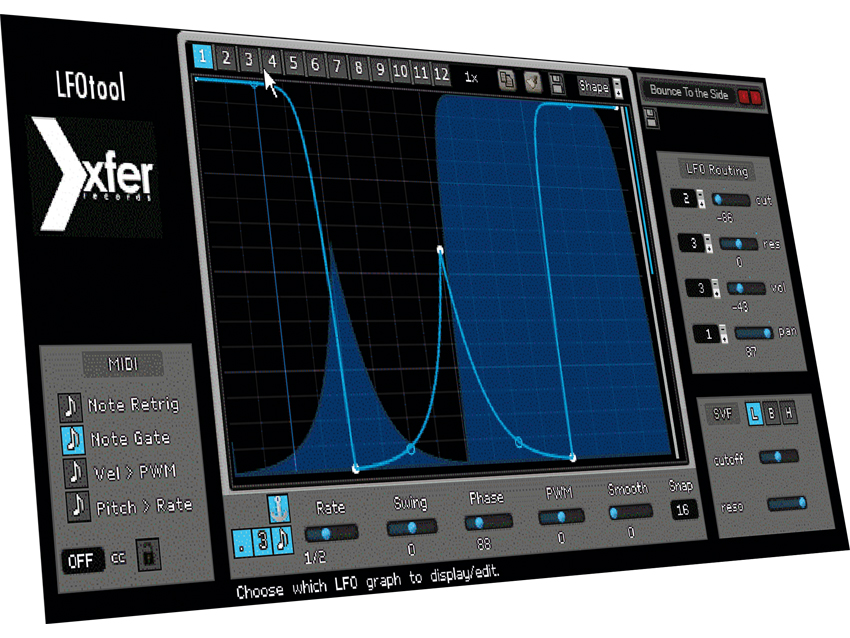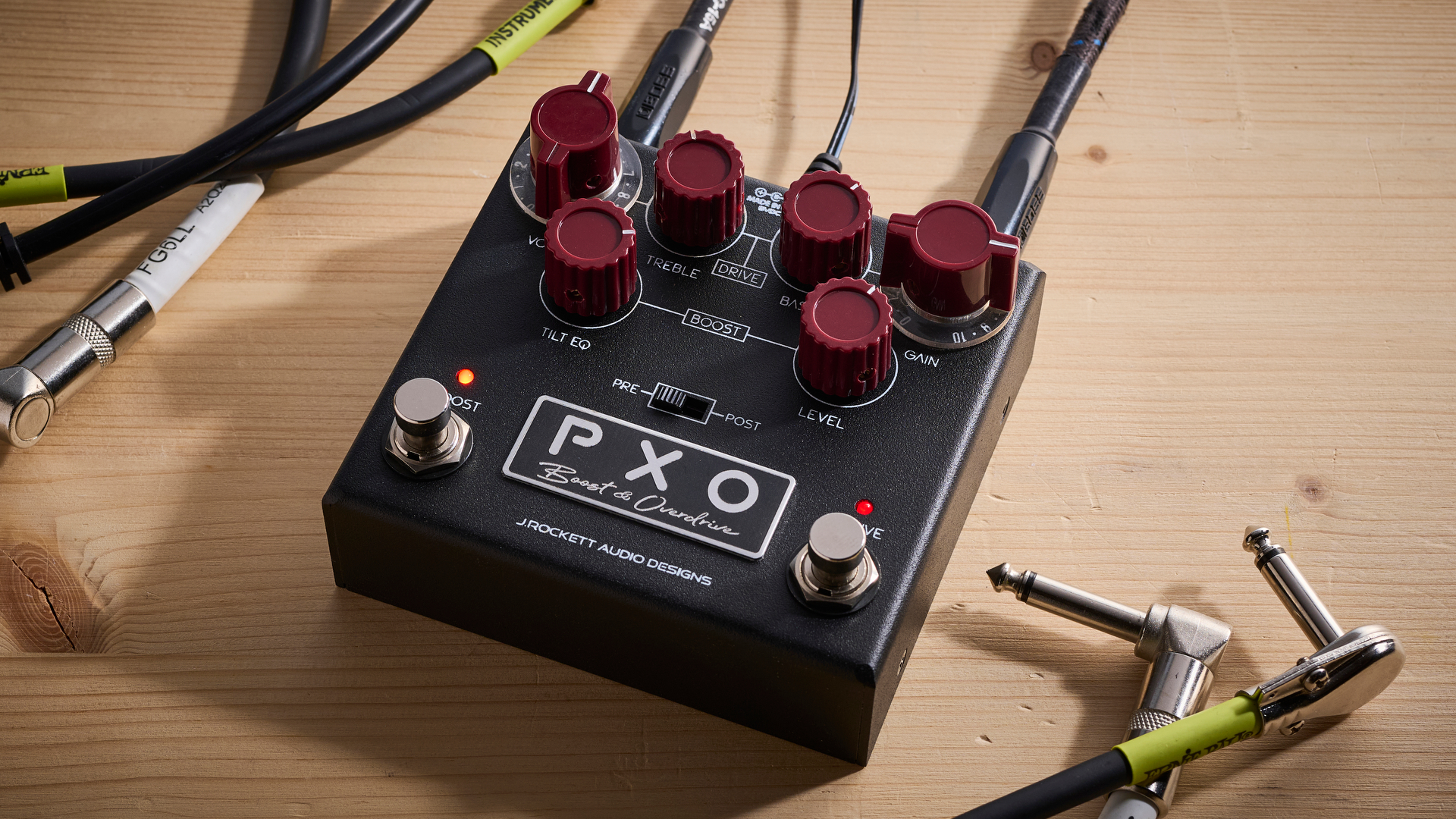MusicRadar Verdict
A value plug-in that combines useful presets with intuitive and quick creativity.
Pros
- +
Many different MIDI-controllable features. Great flexibility.
Cons
- -
Not outwardly glamorous. More moduation processing effects would be nice.
MusicRadar's got your back
Xfer Records, the maker of LFOTool, is owned and run by Steve Duda, one half of software team Devine Machine.
Having worked at Digidesign and moved into the parallel worlds of audio DSP programming and music production Steve is perhaps best known as one half of 'BSOD', alongside Canadian Dance über- producer and Grammy-nominated artist Joel Zimmerman (known to most of us as Deadmau5).
"Settings can be copied and pasted between LFO slots and results can be saved to your hard drive for future use."
In many respects, the clue as to what LFOTool does is in the name. So clearly, the plug-in involves oscillation and modulation, and on first inspection, it appears to be another example of a so-called 'trance gate', but a closer look reveals some real depth in the programming.
LFOMG
At its core LFOTool has 12 LFOs each with full graphical editing capabilities. You can create you own LFO shapes by double-clicking with the mouse in the main graph area. Points can then be moved freely, while the line between points can be dragged to create curved transitions.
A Snap option (using Alt) when moving points enables you to ensure they are quantised to the chosen grid resolution (set with the Snap Control setting).
If all this seems daunting at first, a Shape menu provides access to some pre-configured LFO graph shapes. Settings can be copied and pasted between LFO slots and results can be saved to your hard drive for future use. The Warp Multiplier determines each LFO's speed in relation to the Global LFO Rate.
All mod cons
Beneath the main LFO Graph area, are the global LFO controls, where the plug-in's overall timing characteristics can be tweaked. The Rate control mentioned above sets the overall speed. This can be free-running or locked to the project tempo and offers Dotted and Triplet options if required.
The Anchor button allows tempo locked projects to synchronise to song position, in order to ensure playback is the same each time. Nothing out of the ordinary here, but things get more interesting with the Swing slider and especially the Phase and PWM controls where LFO shapes are shifted or squeezed backwards or forwards in time.
Finally, a smooth control rounds-off any rough edges created from extreme jumps in any of the LFO's shapes.
Wow, wow, wow...
All this LFO flexibility means nothing without something to modulate. LFOTool provides four separately assignable destinations. Volume and Pan take care of the the amplitude options, while Cutoff and Resonance deal with tonal shaping from the switchable low-, high- or band-pass filter section.
LFO Tool has a few more tricks up its sleeve when you dip into the MIDI section. The first address the fact that there are 12 LFOs and only four destinations, as sending different MIDI notes to LFOTool can be used to select new routing sources in real-time.
MIDI Note-On messages can be used to retrigger the LFOs and Note-Offs turn them off. Velocity can be mapped to the PWM parameter, and Pitch to LFO Rate. Lastly, LFOTool can transmit Cutoff values as MIDI CC data, allowing you to record or route complex custom LFO shapes to a MIDI track or VSTi. Phew.
We think it's fair to say that LFOTool is perhaps not outwardly glamorous - and some more modulation processing elements such as distortion, bit-crushing or flanging would have been welcome - but it does quite a lot for not very much, and can be applied to all kinds of sounds sources.
Many genres might benefit from this plug-in, from clichéd Trance gating and Dubstep wobbles, through subtle timbral shifting to the weird and wonderful. It's very fun, useful and inexpensive. Get it.
How hear the LFOTool in action...
Future Music is the number one magazine for today's producers. Packed with technique and technology we'll help you make great new music. All-access artist interviews, in-depth gear reviews, essential production tutorials and much more. Every marvellous monthly edition features reliable reviews of the latest and greatest hardware and software technology and techniques, unparalleled advice, in-depth interviews, sensational free samples and so much more to improve the experience and outcome of your music-making.
“Every note counts and fits perfectly”: Kirk Hammett names his best Metallica solo – and no, it’s not One or Master Of Puppets
Ranked: Bon Iver's albums, from Sable, Fable to For Emma, Forever Ago
“Its mission is simple: unleash the power of any amplifier or line-level source without compromise”: Two Notes promises a “watershed” in tube amp control with the Torpedo Reload II











